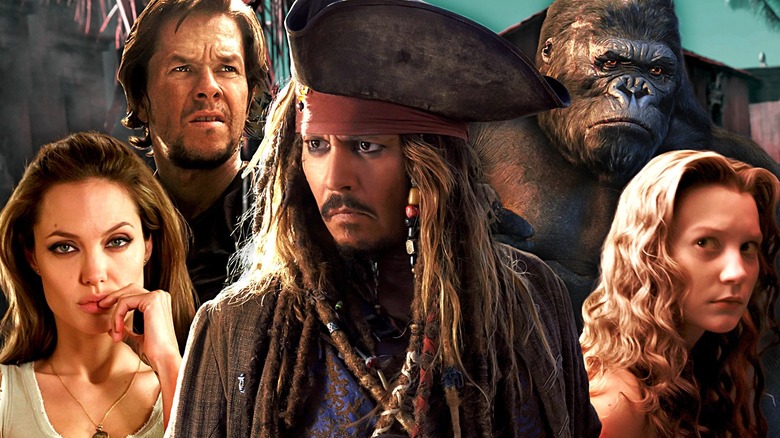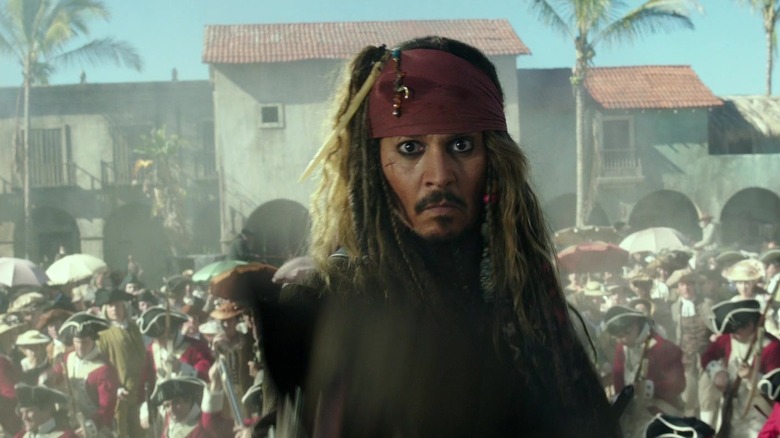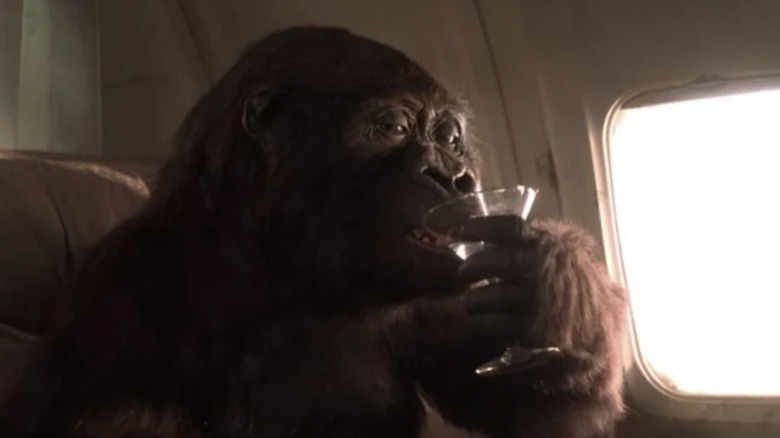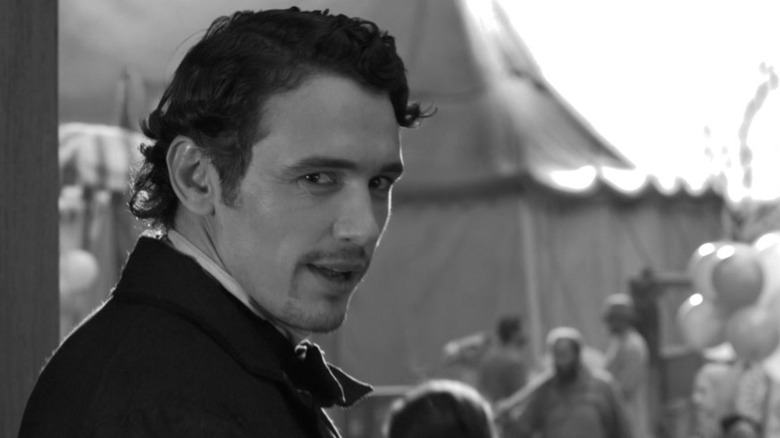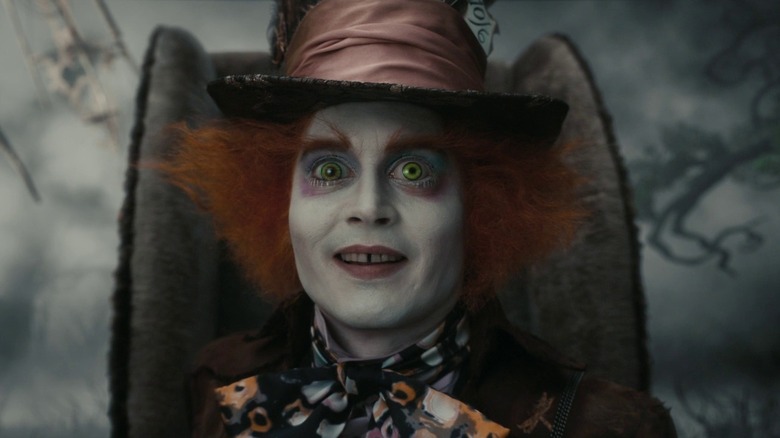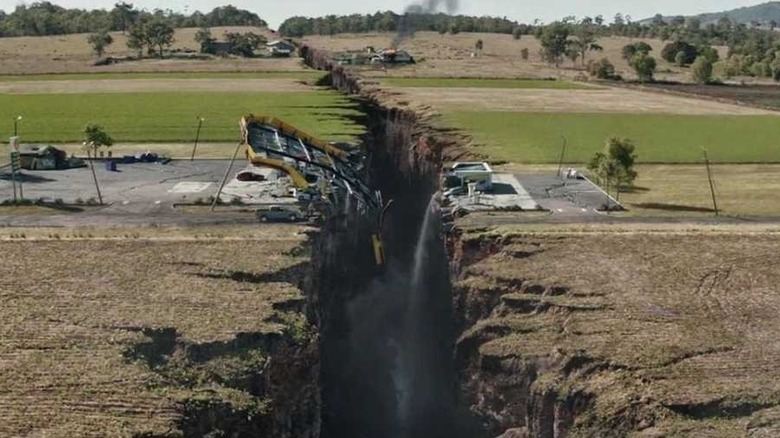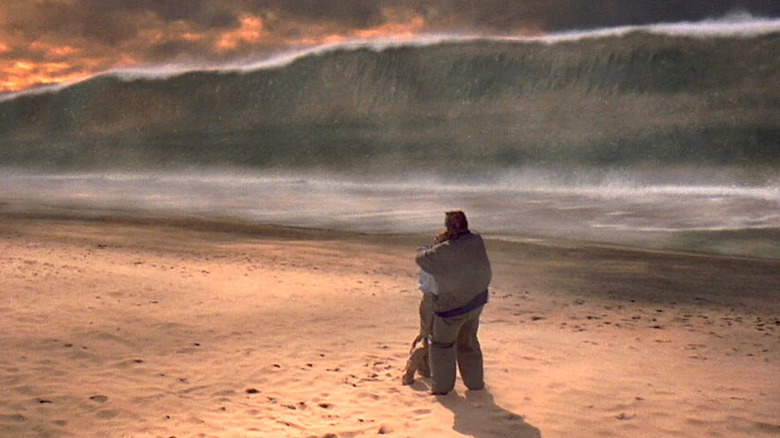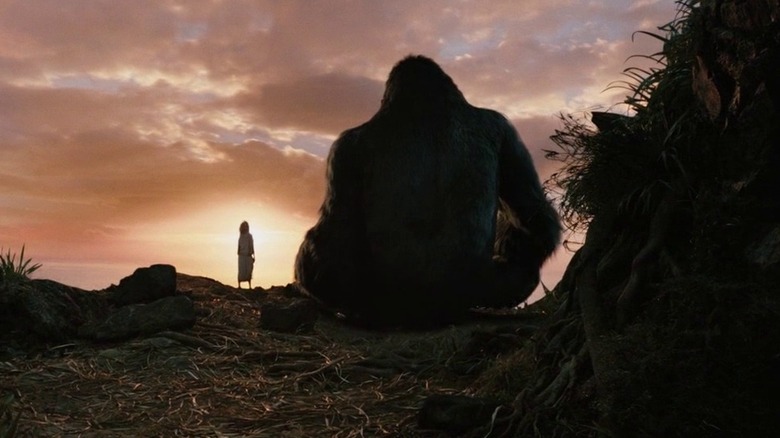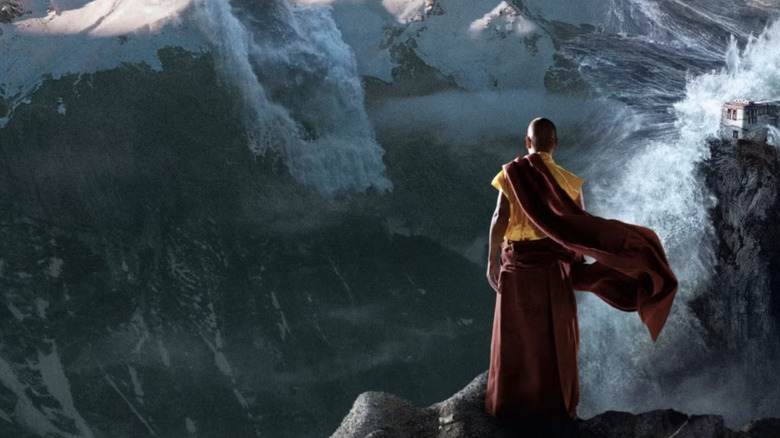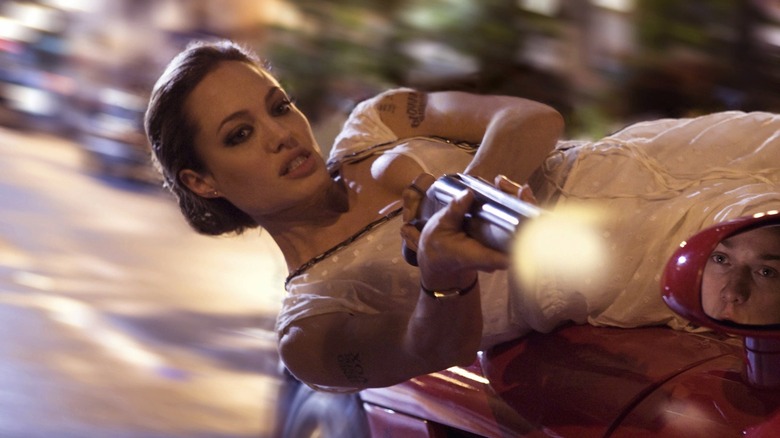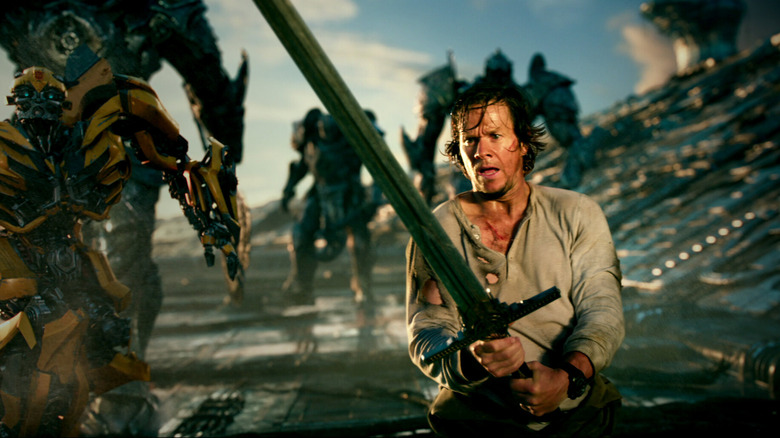10 Box Office Blockbusters That Had Zero Cultural Impact
The movie business is just that: A business. Dollars matter the most. While movie accounting can get pretty complicated, it basically boils down to "a hit is a movie that made more than it cost to produce." But the stakes get much higher when studios spend the GDP of a small country on a movie — and then have to earn the GDP of a medium-sized country to turn a profit. When you have to break records to break even, you're in a high-risk industry. The best way to decrease risk is with a proven commodity; a property you believe will perform because it has in the past. So as great as it is when a movie makes money, it's even better when it has cultural impact.
Cultural impact can be hard to measure. Many argue "Avatar" had no cultural impact despite being the highest-grossing movie of all time, but then "Avatar: The Way of Water" became the third highest-grossing movie of all time. No, you won't see as many "Avatar" acolytes at a comic con as Trekkies or "Star Wars" stans, but those two franchises would kill for "Avatar" numbers right now. Still, there are some films that made plenty of money, even sending them to blockbuster status, but their footprint was so shallow you'd be hard pressed to find people who even remember them. Just because a movie's a hit doesn't mean it makes an impact. So let's see how many of these 10 blockbuster movies you remember.
Pirates of the Caribbean: Dead Men Tell No Tales
The "Pirates of the Caribbean" franchise has looted up a $4.5 billion dollar treasure, for an per-film average of $904 million. Alas mateys, only two movies in the five-film franchise failed to hit the average: "Pirates of the Caribbean: The Curse of the Black Pearl" in 2003 with $654 million (just over $1.1 billion adjusted for inflation) and "Pirates of the Caribbean: Dead Men Tell No Tales" with $794 billion (around $1 billion adjusted) in 2017. Difference is, the original's gross was astounding, while the fifth film was disappointing (especially considering its pirate's booty was saved by China).
Consider the price tag. "Black Pearl" cost $140 million, wild for a theme park adaptation, but chicken feed next to "Dead Men Tell No Tales" at $230 million. Of course, I'm sure Disney thought they got a bargain considering "On Stranger Tides" (i.e. "Pirates #4") cost $379 million. But "Black Pearl" was a bargain and an investment, as it launched four more films. Nothing has followed in the eight years since "Dead Men Tell No Tales." Sure, the "Pirates" series is one of the few sub-genres dominated by a single franchise, but it's been stuck at sea for nearly a decade. "Pirates 5" was undeniably a blockbuster, but be honest ... do you even remember what happened in "Dead Men Tell No Tales?" Heck, did you even remember the subtitle? Guess those dead men really didn't have any more tales to tell.
Congo
When it comes to book authors who make bank, Michael Crichton's on a short list with J.R.R. Tolkien and J.K. Rowling. Unlike them, Crichton did it across multiple stories and even genres, not just one popular franchise. Sure, the bulk of his $7.4 billion worldwide box office comes from "Jurassic Park," but the dude also dreamed up the "Twister" series, as well as big hits whose marketing essentially amounted to "based on a story by Michael Crichton." Crichton was basically a genre unto himself, especially in the mid-'90s, when he became the first and only storyteller to have a number one movie, TV show, and book at the same time. Twice.
With so many accomplishments on his resume, it's not surprising a blockbuster like "Congo" slipped through pop culture cracks. If you remember "Congo" at all it's probably as "the movie where Laura Linney shoots lasers at killer gorillas," and you'd be right. It was also a massive hit, earning $152 million worldwide in 1995 ($300-plus million adjusted for inflation) on a $50 million budget. While the "Jurassic Park" movies broke the opening weekend record three times, those were dinosaur movies from Steven Spielberg, "Congo" was, well, "Laura Linney fighting gorillas with lasers." So it's box office score was impressive. But despite inspiring toys and video games, "Congo" came and went based on Crichton's credibility alone. Though it's ripe for a reappraisal for those of us who admire its apesh**t insanity.
Oz the Great and Powerful
"The Wizard of Oz" came out way back in 1939 and is considered an all-time classic. But just because the beloved franchise has been around for nearly nine decades doesn't mean it has been nothing but ruby slippers. Prestige director Sidney Lumet ("12 Angry Men;" "Dog Day Afternoon") made "The Wiz" with Michael Jackson in 1979, but the King of Pop flopped in the starring role. Meanwhile, "Return To Oz" decided to go dark in 1985, stinking worse than flying monkey poo. Both of those movies bombed badly, so it's no wonder nobody talks about them anymore. The same can't be said for "Oz the Great and Powerful," which put a spell on moviegoers in 2013.
Sam Raimi's return to big-budget, blockbuster filmmaking after the "Spider-Man" series ("Drag Me To Hell" from 2009 cost a mere $30 million) answers the question everybody was asking: Where did "The Wizard of Oz" come from? Okay, nobody was asking that, but they clearly wanted to find out, as "Oz the Great and Powerful" conjured up a $79 million opening, following the yellow-gold brick road to $490 million worldwide ($674 million adjusted for inflation). Of course, it needed to make that much given its insane $200 budget. "Oz the Great and Powerful" had the benefit of opening during the normally slow winter season, but by the end of the year it was back to black and white as moviegoers forgot about it.
Alice In Wonderland
Despite "Snow White" eating a poisoned apple at the box office, Disney's live-action reimaginings have been big business for a while (and it looks like "Lilo & Stitch" will continue the trend). Frankly, they're all pretty forgettable films that had zero cultural impact, but that was kind of the point; each was a cynical cash grab meant to capitalize on moviegoer's nostalgia for old movies that did have cultural impact. Basically, Disney saying: "Hey, remember that thing you liked as a kid? Here it is again ... but in live action!"
When you look at the list of the billion-dollar grossers, it's pretty much all remakes from Disney's Renaissance –- "The Lion King" ($1.6 billion worldwide), "Beauty and the Beast" ($1.2 billion worldwide), "Aladdin" ($1 billion worldwide). With one notable expectation: number four is Tim Burton's "Alice & Wonderland" with $1 billion worldwide, or $1.4 billion adjusted for inflation, after opening with a March record of $116 million ($170 adjusted). Huh? Did people really have such fond memories of the 1951 original they showed up in droves? Or was it Johnny Depp's post-"Pirates" star power drawing them in (though he couldn't save "The Lone Ranger" two years later)? Those played a part, but I suspect the biggest reason is that in 2010 Disney's live-action remakes were still a relatively new thing. Now that they're old hat(ter), moviegoers are less inclined to reflexively show up "just because" — especially when they totally forgot films like "Alice In Wonderland."
San Andreas
Dwayne Johnson's movies have made an absolutely astounding $14.9 billion at the global box office, while he has frequently been Hollywood's "highest-paid actor." But despite being "rock-solid" (sorry not sorry) at the box office, how many of Johnson's movies will stand the test of time? Heck, how many Johnson movies do moviegoers remember five to ten years after they were released (or even five to ten minutes after watching them)? Johnson's a crowd-pleaser by nature, so his movies are meant to appeal to people in the here and now. Makes sense. Problem is, when you make something for the mythical "modern audience" you risk alienating future audiences — or making something completely forgettable. While that can certainly apply to much (maybe most) of Johnson's oeuvre, I feel it particularly applies to "San Andreas" from 2015.
By this point in his career Johnson had established himself as "franchise Viagra," giving much-needed boosts to stalled series like "The Fast and the Furious" and "G.I. Joe." But he had never opened a movie on his own without the help of a pre-existing franchise. Was Johnson a movie star ... or a value add? With the help of a cataclysmic earthquake, "San Andreas" proved Johnson had star power, opening to $54 million and shaking up $474 million worldwide. But it also set the stage for the next phase of his career — big hits with minimal impact. Because despite being about a massive earthquake, "San Andreas" left no footprint.
Deep Impact
Hollywood history is full of similar movies releasing at the same time. Usually one film succeeds at the other's expense ("Olympus Has Fallen" vs. "White House Down"), while other times both films fail after cannibalizing each other ("Volcano" vs. "Dante's Peak"). It's rare when both movies become big hits, but that happened with "Deep Impact" and "Armageddon." Ironically, the one with no lasting cultural impact was "Deep Impact." Kicking off the 1998 summer movie season, "Deep Impact" opened to $41 million ($80 million adjusted) and finished with $349 million worldwide, just over $680 million adjusted for inflation.
With a budget of $80 million, "Deep Impact" gave the suits at Paramount deep pockets. Typically, the first film to be released gets all the gold, but that wasn't the case here. "Armageddon" crashed into the July 4th holiday weekend with $36 million, a little bit less than "Deep Impact", but made up its ground, smashing the other asteroid movie with $554 million worldwide (more than $1 billion adjusted). Granted, "Armageddon" cost nearly twice as much ($140 million), so their balance sheets are closer than it appears. Turns out moviegoers wanted to see a giant asteroid movie, but they really wanted to see a giant asteroid movie with Bruce Willis directed by Michael Bay. "Deep Impact" was lucky it came out first, as it made a lot of money, even if it didn't have a lasting impact. If "Armageddon" was released first, "Deep Impact" would have been a box office disaster.
King Kong
Few filmmakers had more going for them than Peter Jackson in the mid-2000s. The director went from being a micro-budget, shock-master (don't get me wrong, I love "Bad Taste" and "Meet The Feebles"), to the heights of Hollywood thanks to his beloved adaptation of J.R.R. Tolkien's "The Lord of the Rings." Under Jackson's direction, the trilogy once considered "unfilmable" made $2.9 billion in global box office (more than $5 billion in today's dollars), plus won enough gold to coax Smaug from his cave, including a record-tying clean sweep for "The Lord of the Rings: The Return of the King." Jackson could do whatever he wanted and Hollywood would pay the bill. So the Kiwi filmmaker parlayed his newfound power to remake his all-time favorite film: "King Kong."
Jackson had been trying to remake "King Kong" since the mid-'90s, and finally got his chance in 2005. Expectations were sky high for the film, perhaps a bit unrealistically. When it was released that holiday season, moviegoers were treated to a three-hour love letter to the 1933 original, one of the best "King Kong" movies ever — and a movie nobody really remembers. While its $556 million worldwide (just under a billion adjusted) was darn impressive, this was a movie Jackson wanted to make, not one moviegoers necessarily demanded to see. So many saw it, most liked it, then promptly forgot about it. But while Peter Jackson's "King Kong" had little cultural impact, Kong continues his cinematic smashing ways in the Monsterverse.
2012
So you might have been sleeping, but the world was supposed to end in 2012. Granted, if you watch the news the world is always ending, but this time it was really ending because the Mayan calendar stopped in 2012 or something (or more likely people just misread it). Anyway, Hollywood is never going to let a good apocalypse go to waste, especially when there's money to be made. So naturally, they called in the master of disaster, Roland Emmerich, who by this point had ended the world multiple times; with aliens ("Independence Day"), Egyptian pharaoh aliens ("Stargate"), global warming ("The Day After Tomorrow") and giant radioactive iguanas/bastardized IP ("Godzilla"). Emmerich hadn't ended the world with the moon crashing into Earth yet ("Moonfall"), but that would come later.
"2012" imagined the Earth reaching her expiration date and hitting us with every end-times scenario all at once: earthquakes, volcanic eruptions, tsunamis, floods, and inflation (okay, I made up the last one). Meanwhile, global elites have been secretly building bunkers in preparation for the ensuing cataclysm (okay, that part I believe). "2012" amassed $757 million worldwide in 2009, second only to "Independence Day" on Emmerich's box office oeuvre, and it even managed to make more overseas. But while "2012" struck a nerve, it didn't stick around. Even by the time the actual 2012 came and went, the film had long since faded from our shared pop culture memory. Like the humans who survive Emmerich's work, the moviegoing audience just moved on.
Wanted
Hollywood actresses love following Oscar-winning roles with attempts to launch action-movie careers (Charlize Theron in "Aeon Flux;" Halle Berry in "Catwoman"). While many kneecap their careers, one A-list actress did jump from indie dramas to big-budget action flicks: Angelina Jolie. Right after winning her Oscar for 2000's "Girl, Interrupted" she costarred with Nicolas Cage in "Gone In 60 Seconds," followed by two turns as "Tomb Raider" and one role opposite her future husband, Brad Pitt, in "Mr. and Mrs. Smith." Sure, there were some misfires along the way ("Sky Captain and the World of Tomorrow"), but Jolie still established herself as a bona fide box office draw in action movies.
So with the wind at her back Jolie starred in 2008's "Wanted," based on a cult comic by Mark Millar and J.G. Jones. Sure, technically James McAvoy's the protagonist, while Morgan Freeman lent gravitas, but there's a reason it was Jolie with a big gun slapped all over the marketing materials. "Wanted" opened to $50 million, not bad for an obscure comic without a huge built-in audience. But "Wanted" didn't need a big fanbase; Jolie brought her own. "Wanted" closed with $342 million worldwide ($500 million adjusted) on a $75 million budget, packing a tidy profit for Universal. Thing is, does anybody remember what "Wanted" was about, or even remember it, period? Who cares? "Wanted" was an Angelina Jolie action star vehicle that came and went, but did its job. Still, we're not holding our breath for "Wanted 2."
Transformers: The Last Knight
The nine "Transformers" movies have made roughly $5.4 billion at the worldwide box office, but can you remember any of them? All I remember is Optimus Prime died in the 1986 animated movie. When we look at just the Michael Bay-verse ... uh, I think there's one with dinosaurs, yeah? Still, while all of them were forgettable, there's no denying they made a cultural impact. Otherwise, why would Paramount keep making them? Alas, the party stopped with 2017's "Transformers: The Last Knight," a.k.a. "the one with Anthony Hopkins." On an insane $217 million budget, "The Last Knight" earned $602 million worldwide. A solid profit, but a scary drop from the previous two films (2014's "Transformers: Age of Extinction;" 2011's "Transformers: Dark of the Moon") each banking north of a billion.
"Transformers: The Last Knight" would have done even worse if not for China, as it opened with less than half the previous film ($44 million to $100 million), and closed with $115 million less stateside ($130 million to $245 million). Did domestic moviegoers suddenly lose interest in just three years? Apparently. Thing is, like a bad bender, the "Transformers" series was fun at first, but was never a particularly good experience. The robots in disguise got exposed, and moviegoers were over it. While undeniably a box office hit, "The Last Knight" hit the brakes on the billion-dollar franchise. While the ending teased a showdown with big bad Unicron, all we've gotten since are three semi-successful prequels.
